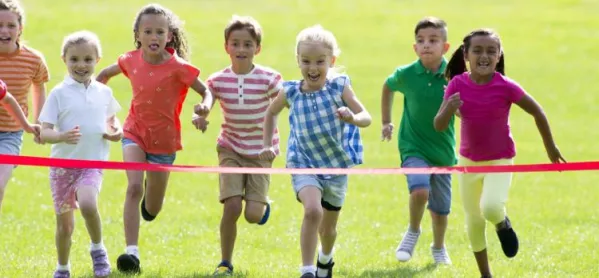The value of sport in building character and leadership behaviours has been widely recognised throughout history - whether that’s the grit and determination to get back up following a defeat, or galvanising team mates to give one last push in a tight encounter.
The lessons learned on the field of play translate to wider life; a survey commissioned by British Universities’ and Colleges’ Sport found that more than nine in 10 (94 per cent) of employers identified a clear link between university sport participation and valuable skills and strengths in potential employees, for example.
The recent coverage of school sports days, questioning their value, purpose and even existence, painted a false image of the health of school sport.
These articles focused on a supposed erosion of the true value of competition, and stoked an impression that competition and ability are denigrated for fear of causing upset.
Why was this a false impression? Well, with the Government Sport Strategy having necessitated a review of school games, the publicly funded programme looks set to grow further and with aims of encouraging and growing competitive school sport opportunities for young people across England; there are already 87 per cent of schools on board.
Competition is key
With a network of 450 school games organisers supported by the Youth Sport Trust, the challenge has been set to keep competitive sport at the heart of schools and provide more young people with the opportunity to compete and achieve their personal best.
This is an exciting and compelling vision: no longer should the old stories of “always coming last” or “hating every minute of it” be the stories we hear.
Equally, tabloid headlines of “schools ban winning” are inappropriate.
Instead, we should focus on what all young people can learn through sport, and learn lessons which will help them to fall in love with sport and physical activity for the rest of their lives.
Young people in the 21,570 engaged schools should be experiencing competition in exciting and relevant formats; developed by 42 different national governing bodies, the options are there to provide opportunities that allow students to experience the highs and lows of winning and losing from a personal and collective perspective in sports and activities they are interested in.
As many sports enthusiasts reflect on the traditional sports day with memories of trophies lifted or records broken, we should all be mindful that for competition to be valuable for all, there should be some parity between the competitors.
For example, is a 7-0 victory in an under-14 football match or a 30-second lead in an 800m race at under-12 as memorable as a tightly fought battle, won or lost with friends?
Do you learn anything from a one-sided result as winner or loser, or can you learn more if measures are taken to create an environment which is truly competitive and challenges every young person to be their personal best?
The provision of competition alone isn’t enough.
In order for the experience to be positive and to lead to ongoing participation, young people need to feel competent and confident - which can be developed through the opportunity to practice in a supported environment.
Like in any learning environment, it takes care and creativity to help to ensure effective learning - leave it to chance and some young people will be disengaged.
By framing competition as a means to challenge yourself and achieve your personal best, every child has the opportunity to learn from and love sport.
Emily Reynolds is head of sport at the Youth Sport Trust
Want to keep up with the latest education news and opinion? Follow Tes on Twitter and like Tes on Facebook
